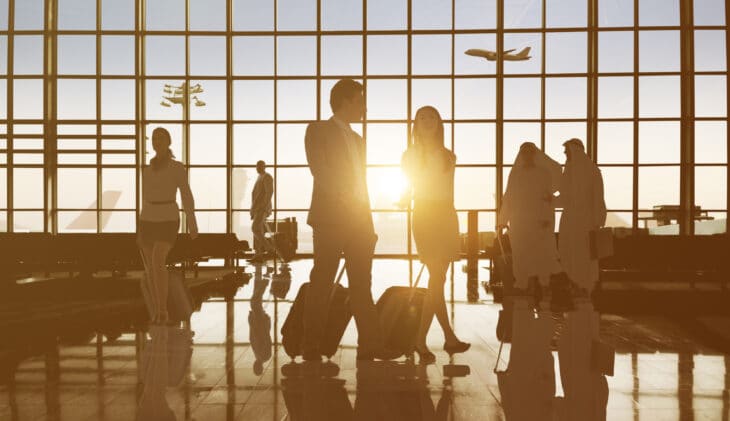COPYRIGHT © MICEBENELUX.COM, ALL RIGHTS RESERVED.

Companies should prepare for business travel recovery starting in late 2021. Especially now that vaccination has picked up steam around the world, employees are once again ready to travel and meet people.
Since the start of the corona pandemic, business travel has virtually come to a halt. Meetings with clients are done online, and professionals around the world have learned how to maintain contact with clients, partners and colleagues without hopping on a plane or train. But online communication also appears to have drawbacks. Video conferencing may be a godsend, but more and more people are suffering from “Zoom fatigue” in the meantime. In addition, there is an increasing need for personal contact and interaction. The Global Business Travel Association, in its latest Business Traveler Index Outlook – Annual Report & Forecast, expects the recovery of European business travel to begin by the end of 2021.
“Travel will continue to be an important part of doing business, but will look different than it did before the pandemic. In view of their duty of care, companies should continue to give top priority to taking the right precautions,” says Jan-Willem Basselier, director business development travel EMEA at SAP Concur. “In doing so, several considerations play a role for employees. Which mode of transportation offers the best protection against infection? When traveling, are tickets booked for seats that allow adequate space to fellow passengers? Are higher class hotels and airlines chosen because they offer more individual space and may have more stringent hygiene and safety standards? Is hiring a cab or rental car better than public transportation? It is important for traveling employees to know that their company is thinking about these kinds of issues and putting their health first.”
Sustainability remains a focus
Although recovery is expected to begin in 2021, it is unlikely that business travel will return to pre-corona levels. This means fewer business trips and lower travel costs for companies. In the process, some organizations will also begin to question whether sustainable travel programs are still necessary. Especially since sustainable business travel often requires paying a bit more. In doing so, however, one must be aware of the potential risks of moving away from sustainable travel. One may then be less attractive to new talent, the lack of sustainability may affect customer requests, and it may damage brand reputation.
In order to make good judgments about sustainable travel, data are essential. Only with full insight, from carbon emissions to green travel partners, can companies and their traveling employees continue to make the right sustainability choices. According to the Corporate Travel Sustainability Index, at least employees are willing to do their part. Almost all Benelux business travelers surveyed (98%) are willing to travel longer if it makes them a more sustainable traveler. 37% are even willing to travel more than four hours longer if doing so significantly reduces the impact of the trip on the environment.
It is almost certain that business travel will look different in the future. But personal contact in business is still as important as it was before corona, so employees will certainly get back on the plane, the train and the cab. Platforms that support travel managers in ensuring employee safety, controlling costs and protecting our planet are an important tool.
Share this article
COPYRIGHT © MICEBENELUX.COM, ALL RIGHTS RESERVED.